- Home
- Alex Berenson
The Wolves Page 18
The Wolves Read online
Page 18
“I can check—”
“No need,” Tsang said. “We check already. No one has permits. No more guns. We catch them, we arrest. Illegal. Illegal.”
For a guy whose English wasn’t great, Tsang got his points across.
“Commissioners, with respect, your concerns seem misplaced—”
“Hong Kong not Macao!” Tsang’s voice rose. “Hong Kong safe. Safe for tourists, for business, for everyone. What happen today—” He shook his head vigorously.
Lo lifted a hand to Tsang. Relax. “We just want to solve this fast. We’re hoping you can help us.”
Despite the trouble he faced, Duberman had to fight a smile. Good cop, bad cop was universal.
“Your solicitors ask the government about citizenship,” Lo said.
“I hope you’re devoting as much energy to finding the killer as investigating me.”
“This kind of violence, the territory has no interest. You understand?”
“I think so.” Looks like I’m wearing out my welcome all over. “Can you tell me anything about the shooter? The reports say you have footage of the motorcycle. Have you gotten a look at his face?”
“So far, no. He was careful. The cameras at the Cross-Harbour show he came in from Kowloon this morning. But he was wearing the helmet. And the license plate hasn’t triggered any alarms. He must have left it somewhere.”
“What about the registration? Or was the plate stolen?”
“Motorcycle was legally registered by someone named Ha Jin more than a year ago in Mong Kok. We’re looking for him, but he gave a false address. Probably fake name.”
“The rider, do you think he was Chinese? Or white?”
Lo stared at Duberman for seconds that felt like minutes. “Until we see his face, we don’t know. But most Chinese not that big. So probably white. Does that help?”
“Not really. In Macao, we’ve had problems with the Hung Hing triad.”
Duberman was exaggerating. All the Macao triads demanded casino kickbacks. 88 Gamma handled them the way companies had always dealt with the Mob, by overpaying for messy but crucial services like garbage hauling. Hung Hing, the smallest of the major triads, was agitating for more business. Duberman’s chief of security in Macao had assured him that he would handle the problem. They’ll see reason or we’ll put them down.
“No triad hires a round-eye for this,” Lo said. “And even if he, the killer, was Chinese, have you had problems in Macao? Violence. Fires, workers beaten up, anything like that?”
“Not that I know of.”
“Hung Hing starts with that. Not this. If we need to interview your bodyguards—”
“I’ll make sure they cooperate. Some only speak Hebrew, so you’ll need an interpreter.”
Tsang’s phone buzzed. He pulled up a text, showed it to Lo.
“We found the motorcycle,” Lo said. “We must go.” He shoved a business card on Duberman. “My mobile number and my office. Please call me if you think of anything.”
“When,” Tsang said. “When you think.”
—
LO, JIANG-XI HARGROVE, Deputy Assistant Commissioner, Chief of Detectives, Hong Kong Police Force, the card read. Duberman wanted to tear it apart. He’d known the police wouldn’t be happy with him, but he hadn’t realized they would blame him for the disruption and bad publicity from the killings. They would force him out of Hong Kong if he didn’t help them.
“Was that an interview or an interrogation?” He looked at Gideon. “And you. Day off? Day off?” Duberman knew the anger was counterproductive, but he couldn’t stop himself.
“Did you want me to say they were chasing Orli’s pretend stalker?”
“We have to give them something.” Duberman, thinking out loud now. “What about a version of the stalker story? Without Wells. Say somebody’s making threats. Anonymous letters, but serious. Worst of all, he always seems to know where she is.”
“What about Roberts?”
Duberman needed a moment to remember. They had told William Roberts that John Wells was the man stalking Orli. They would have to convince him to sign on to this different version, unless—
“Tell Roberts to take a couple of weeks off. Paid. Starting immediately.”
“He’ll go for that?”
“Say we need to review our security after what’s happened. If he gives you too much grief, I’ll order him myself. We don’t have a choice. If they interview him, he’ll mention Wells.”
Gideon frowned. Duberman could read his mind. Our lies don’t even make sense anymore, for every leak we plug, two more spring . . .
“I know what you’re thinking,” Gideon said. “The FSB.”
Now I am. “Have a better idea?”
“At least promise me you’ll tell Orli before you do anything.”
Duberman stepped close enough to see the tiny flecks of gray stubble rising from Gideon’s cheeks. “I don’t want to keep having to say this. You’re forgetting your place.”
Gideon blinked, nodded. “I’m sorry.”
“Talk to Roberts. Come back when you’re done, we’ll see if we can’t come up with some story that doesn’t sound idiotic for the cops.”
“Yes. Boss.” Gideon walked out.
—
THE PAPER with Buvchenko’s number was in Duberman’s wallet. He’d carried it with him since the day in the garage. He must have known this moment would come, that Wells would keep coming and upset the equilibrium Duberman had managed to create. He pulled out the wallet, battered brown leather, Orli’s first present to him. He riffled through a wad of brightly colored Hong Kong banknotes, panicked briefly when he couldn’t find it.
There. His fingers shook as he plucked it out. Gideon was wrong. The FSB needed him as much as he needed them. Spy service seeks wealthy older gentleman for mutually beneficial arrangement . . . He’d give them Cheung.
A pimp. Serving a pederast.
But what if there was another way? What if—
Maybe. If he could find a way to isolate Cheung. Maybe. Of course the FSB would have to do its part. But why wouldn’t it?
Before Duberman could change his mind, he thumbed in the digits, pushed the green call icon. The phone was answered on the first ring. Like Buvchenko was expecting him.
“Mikhail? It’s Aaron. We need to talk.”
13
When the killing was done: Wells kicked the Honda into gear, twisted the throttle, leaned low over the handlebars, raced past the gape-mouthed tourists outside the restaurant. No one blocked his path or told him to stop. No one followed. Civilians never did.
For forty-eight seconds, Wells put the bike through its paces, a hundred and ten kilometers an hour on a crowded street, dodging traffic in both directions with the joy of a skier slaloming gate to gate, the engine’s blessed roar drowning every thought. Then Wellington Street ended. He downshifted, slowed, crossed Queen’s Road Central, and turned into the parking garage at Cosco Tower, a blocky fifty-story skyscraper with an ugly blue-black façade.
He ditched the Honda behind a column on the garage’s second underground level. The police would still find it, but they might need an extra pass. He kept his gloves on as he pulled off his helmet and hooded gray sweatshirt and tucked them beside the bike. He didn’t worry about leaving them. They were untraceable. He had bought the sweatshirt from a street vendor in Kowloon. It didn’t even come with a label to cut off. Underneath it he wore a long-sleeved button-down blue shirt and a wide brown belt.
Next, Wells pulled a pair of brown Doc Martens and a folded H&M shopping bag from his backpack. He dropped the empty pack beside the helmet. Every movement precise and calculated. He laid the pistol and suppressor at the bottom of the H&M bag. He would keep them for now. A dangerous choice, but he needed a pistol, and he wasn’t sure how quickly Wright could supply him a replacement. Final
ly, he pulled off his boots and gloves, laid them in the shopping bag over the pistol. He slid on the Docs, his transformation from assassin to paralegal complete.
He took the fire stairs to the street. Walking, not running. Five minutes had passed since he’d pulled the trigger. Even in New York, one of the few cities with a police force more sophisticated than Hong Kong’s, officers needed eight minutes on average to respond to major crimes in progress. Of course, averages were only averages. A squad car might have been near Yung Kee. But even if the police had already reached the restaurant, their first priorities would be to triage the victims and make sure that they weren’t facing an ambush. Only then would they try to track the shooter.
On the sidewalk, Wells saw that word of the killings had not yet followed him down Wellington. Men and women streamed out of Cosco and the skyscrapers around it, enjoying the sunshine on a pleasant post-monsoon day. On the other side of Queen’s Road Central, sirens wailed, their volume increasing by the second. But the people around Wells were so far registering them mainly as an annoyance.
The entrance to the Sheung Wan MTR station lay a hundred meters west, an obvious escape route. Too obvious in a world of surveillance cams. When the cops found the motorcycle, they would canvass the footage around the parking garage. The fire exit wasn’t covered, and Wells had protected himself by changing his clothes. They would know he was tall, and maybe that he was white. But Hong Kong’s skyscraper district was filled with tall white guys, investment bankers who had rowed crew at Harvard.
The cops would have one great advantage, though. Thanks to the cameras at the garage entrance, they would know almost exactly when Wells had ditched the bike. They would focus on the minutes afterward, and especially the nearby MTR, looking for anyone rushing to leave the area. Wells did the opposite. He walked casually toward Central, on his lunch break like everyone else.
Minute by minute, the sirens howled louder, overlapping from every direction. A police helicopter circled low, swerving between skyscrapers, close enough for Wells to see the cameras mounted on its nose. A man a few steps ahead looked from his phone to the helicopter, then turned and broke into a trot. Behind him, a woman said, “Are you sure? Wellington?” In a city where everyone had a smartphone, news spread fast.
Fine by Wells. The commotion would cover his escape. He’d waited long enough. He needed to be gone before the police flooded the area. He doubted they would shut down the subway or set up roadblocks, but they might. They would almost certainly try random bag checks, a risk he couldn’t take.
He hailed a cab. “North Point MTR.” The station was east of downtown, not far from William Roberts’s apartment on Tanner Road. The driver pulled out, then braked as two police cars sped by.
“What’s going on?”
The driver turned on his radio. Wells didn’t understand a word, but the announcer’s excitement was obvious.
“Shooting. Near here. Two men hurt. Maybe killed, the police don’t say yet.”
“They catch who did it?”
“Don’t say that, either.”
They drove east, leaving Central behind, as an armada of police cars came the other way. By the time the cab reached North Point, the sirens were only a whimper, and the city felt normal. No one paid Wells any attention as he rode across the harbor to eastern Kowloon.
At Yau Tong station, he transferred to the green line, which ran to the center of Kowloon, just a few blocks from his crash pad. He found an empty seat in the front corner of the first car and stuffed the bag between his legs. He was the only white face in the car, but he felt invisible. Without exception, the other riders craned over their phones, crashing cartoon birds into cartoon pigs, lining up rows of brightly colored jewels, reading texts in two languages, the train crowded and empty at once.
Wells folded his hands in his lap and tried to deconstruct those seconds when he hadn’t pulled the trigger. But he stalled out quickly. He couldn’t even pick the right word to describe how he’d felt. Panicked? He’d been calm. Frozen? Closer. But still not right. Frozen implied he hadn’t made a conscious choice. If anything, Wells remembered the opposite. A single thought had gripped him, overwhelming a decision that should have been automatic. Don’t. Had he feared he might kill a bystander? Or simply choked on the thought of cutting two more cords? Cousins, men in the business, men who were neither innocent nor guilty.
Even now he wasn’t sure.
The fact that Wells hadn’t entirely lost his survival instinct was cold comfort. When Peretz spotted him and drew, Wells gunned him down. But what if Peretz hadn’t seen him, and walked by? Would Wells have let him go? Worse: What if Peretz had seen him, but walked past as if he hadn’t, then finished Wells with a shot in the back of the head?
An operative who couldn’t pull the trigger when he had the drop was worse than a rock climber afraid of heights, a danger not just to himself but to everyone around him. Wells’s hesitation had given Makiv the chance to fire twice. Sheer luck that those rounds hadn’t hit bystanders.
Strangely, Duto was the one who’d seen this crisis coming. He’d said so three months before, after they delivered proof of Duberman’s plot to the White House. You want it to be clean, John? You know that’s impossible.
At the time, Wells ignored the warning. A lecture from Duto on the dangers of conscience seemed the definition of irony. But maybe the man was right. Maybe Wells ought to buy a ticket on the next flight home. He’d sit in coach, where he belonged. He’d done enough for the cause. All the causes. More than enough. Too much. Let the great world spin while he watched, peaceful as an astronaut.
And Duberman would win. Wells would have killed Peretz and Makiv for nothing. He couldn’t abide that. You couldn’t make an omelet without cracking skulls. Block that metaphor. Wells choked a laugh down his throat. He closed his eyes and simmered as the train sped through the darkness, its destiny mapped, doomed to stop at the same stations, run the same tracks again and again. Until it was scrapped, replaced with a newer model.
This was the life he had told his son to choose?
—
HIS PHONE BUZZED just as he reached the crash pad, a text from Garry Wright.
That was you?
Sí.
Clean?
The question annoyed Wells. Wright should know better. As a toilet seat.
A pause. Then: K. Anything else coming?
Really want to know?
I do.
Not now. Wells would stay in Kowloon tonight, see how Duberman reacted, what the cops were saying, how much they had. Worst case, they would release a photo of him. He hoped Roberts would call, though he knew that the contact might be a trap. Roberts might decide that giving Wells to Duberman was his best hope to stay alive.
Might. Could. If. Then. The decision trees divided and divided again. Wells wanted distraction, but this room didn’t offer much. No Internet, no television, not even a radio. So he prayed for forgiveness, for himself and the men he’d killed. The words came hard today, gritty as sand in his mouth. Yet when he was finished, he did feel more connected, more peaceful. Fuller of peace? It was not even 5 p.m., but he turned out the lights. His missions had taught him to bank sleep when he could. Odds were he’d need it soon enough.
—
A BUZZING WOKE HIM. He’d dreamed of Anne, and for a moment he heard the crickets that filled the woods around their—her—house every spring. But when his eyes adjusted to the room’s darkness he knew better. The burner, buzzing. A blocked number. Wright’s flat midwestern voice.
“So you know. Police called us today, the consulate. They hooked the vics to your friend right away. Wanted to know what we knew about him. Seem to be blaming him. “Anything like this, a black mark on the territory, Beijing watches. Big pressure.”
Both good and bad news. If Wells had made a mistake, the police would surely find it. But Duberman was already feeli
ng heat. “They have anything?”
“They weren’t in a sharing mood. But they did say that Duberman’s lawyers requested citizenship for him a few weeks ago. They asked us if we knew, which of course we didn’t. Anyway, they were fast-tracking it. Now it sounds like it’s off the table unless he helps them.”
An unequivocal positive. Duberman had no good plays. If he gave Wells’s name to the police, he couldn’t be sure where the investigation would lead. The stalker story wouldn’t stand scrutiny. But if he refused to help, Hong Kong might revoke his visa, force him out. Where would he go? Maybe Macao. He could move into a suite at 88 Gamma, a casino’s worth of protection.
But Macao, like Hong Kong, danced to Beijing’s tune. It, too, would force him out sooner or later. And what about Orli? She might decide a casino wasn’t the ideal family home, even if her husband owned it. Duberman’s best move was still to make Wells disappear. At least then Wells wouldn’t be around to knock down the stalking story.
“The cops? He won’t help them,” Wells said.
“Agree. You need anything, you know where to find me. BTW. Nice job.”
If you only knew.
Wells hung up, flipped on the naked bulb overhead. He’d used this phone enough. He pulled its SIM card, laid down a hand towel to muffle the noise, smashed the case with a hammer he’d bought for just this purpose, five quick strikes that shattered the phone into shards of black plastic. A true no-regrets kill.
Nine p.m. The sun was down, but the city hardly seemed to notice. The streets of Mong Kok were perfect for countersurveillance, narrow and alley-cut, easy for Wells to pick a jagged path north and west, quick turns to confound any watcher. When he was sure no one was on him, he dumped what was left of the phone in an open garbage bag. Three blocks later, he dropped the SIM card in a sewer.
On the way home—the crash pad, home—Wells stopped at a dim sum restaurant, bright fluorescent lights over a dozen narrow tables for two, but no couples inside. Just single men, spooning soup dumplings into their mouths like they were practicing for a competitive eating contest. Such a densely packed city and yet it felt so lonely to Wells, the most atomized place he’d ever seen. But then he trafficked in loneliness.

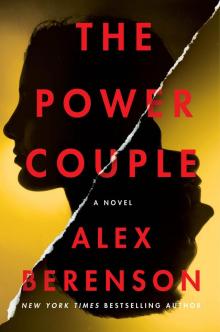 The Power Couple
The Power Couple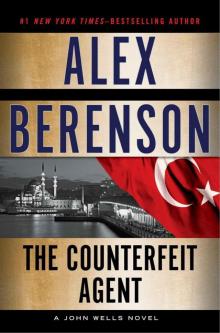 The Counterfeit Agent
The Counterfeit Agent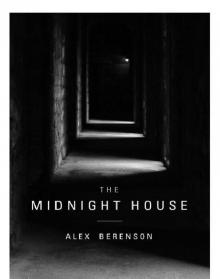 The Midnight House
The Midnight House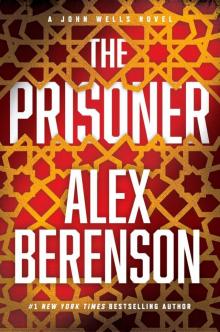 The Prisoner
The Prisoner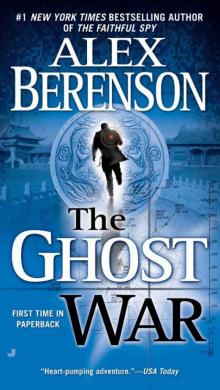 The Ghost War
The Ghost War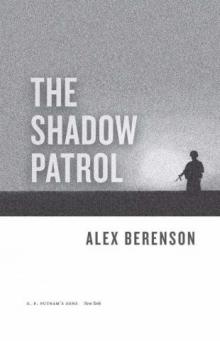 The Shadow Patrol jw-6
The Shadow Patrol jw-6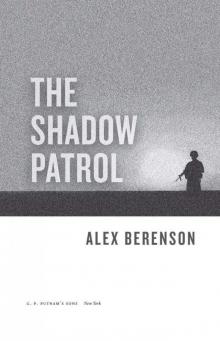 The Shadow Patrol
The Shadow Patrol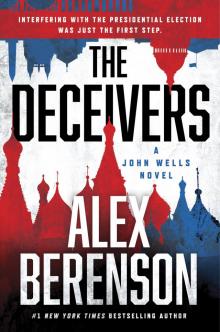 The Deceivers
The Deceivers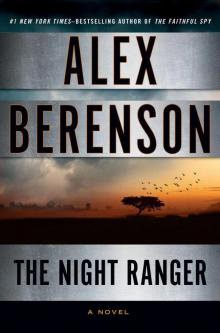 The Night Ranger jw-7
The Night Ranger jw-7 The Faithful Spy
The Faithful Spy The Prince of Beers (Kindle Single)
The Prince of Beers (Kindle Single)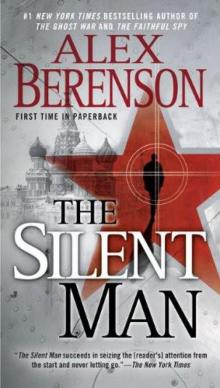 The Silent Man jw-3
The Silent Man jw-3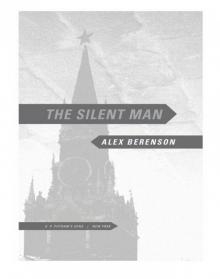 The Silent Man
The Silent Man The Wolves
The Wolves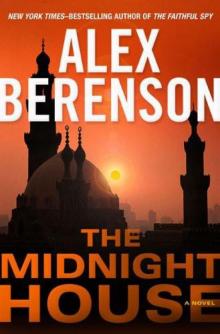 The Midnight House jw-4
The Midnight House jw-4 The Ghost Agent
The Ghost Agent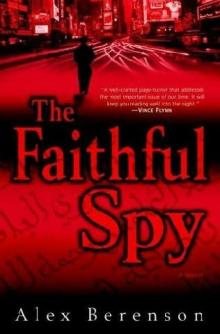 The Faithful Spy jw-1
The Faithful Spy jw-1 The Prince of Beers
The Prince of Beers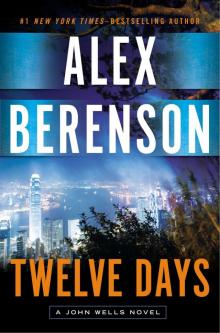 Twelve Days
Twelve Days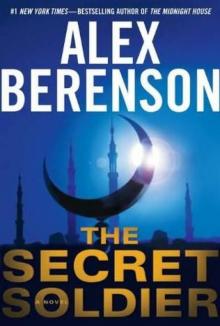 The Secret Soldier jw-5
The Secret Soldier jw-5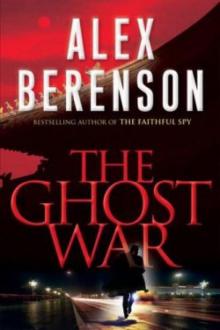 The Ghost War jw-2
The Ghost War jw-2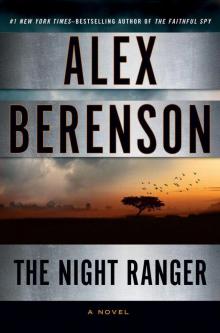 The Night Ranger
The Night Ranger